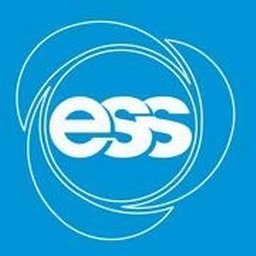The European Spallation Source (ESS) is a partnership organization of 13 European member countries located in the city of Lund, Sweden. The ESS is hiring motivated and inspiring people from across the globe to design, construct and operate the world’s most powerful neutron source. We seek collaborative, talented people in a range of fields who are excited about playing a part in the future of science in Europe. Our Division of Scientific Support is currently looking for a Post-doctoral fellow for lipid deuteration and development of contrast methodologies for neutron experiments.
This role is part of the LINXS EU COFUND research project AMBER (www.ambercofund.eu), Advanced Multiscale Biological imaging using European Research infrastructures.
Description of the workplace
You will be based in the Scientific Support Division of the European Spallation Source led by Hanna Wacklin-Knecht and will work within the ESS deuteration laboratories on developing methods for the isolation and characterisation of deuterium labelled lipids from cell cultures, and their application to understanding lipid self-assembly in health and disease. You will also have access to the state-of-the art research facilities at the Division of Physical Chemistry at Lund University for membrane reconstitution and characterization experiments in preparation for the first neutron experiments at ESS. Proposal-based access to European neutron and X-ray beam facilities will also be used in this project.
PROJECT DESCRIPTION
Deuteration as contrast agent for imaging cell membrane properties at the molecular scale in using neutron scattering.
We seek a highly motivated postdoc with strong analytical and laboratory skills for the development of biological deuterium labeling of lipids and their application to studying the role of lipid self-assembly in health and disease using neutron scattering methods. The project will involve the deuteration, purification and analysis of biological cell membrane lipids at the ESS deuteration laboratories, and membrane reconstitution and characterisation at Lund university Division of Physical chemistry where Hanna Wacklin-Knecht holds a position as Adjunct Associate Professor.
Lipid composition regulates many functions of cells through driving membrane self-assembly, physical properties and dynamics. The lipid composition in cells is very complex and varies between different types of membranes and cell types. Alterations to the native lipid composition are related to the development and treatment resistance in many debilitating diseases including in cancer, where such alterations may be hereditary, dietary, result of environmental factors, or arise from the altered metabolism of the cells. At the same time, many modern drug formulations and delivery systems rely on self-assembled lipid carriers that need to interact with biologically complex target membranes in-vivo. Lipidomic profiling is beginning to yield information about the role of lipid composition in these processes, but obtaining information about the biophysical effects and consequences at the molecular level remains challenging.
In this project we focus on detecting the biophysical effects of lipid alterations using neutron scattering techniques employing advanced cell membrane mimics labelled with deuterium to probe specific aspects of lipid self-assembly and how it contributes to changes in physiological mechanisms or treatment response. Advanced mimics of human cell membranes will be built from eukaryotic lipids expressed in deuterium labelled cell cultures to enable modeling different cell membrane environment closely. The main focus of this postdoc project will be on developing the use of deuterium labeling, membrane reconstitution and experimental methodologies for neutron reflectometry to probe membrane structure in collaboration with an international team of researchers.
Duties and Responsibilities
The main duties will be to further develop methodologies for the isolation and analysis of biologically deuterated lipids from cell cultures, and the reconstitution of advanced cell membrane models for neutron reflectometry experiments/analysis to probe membrane structure and properties. Neutron reflectometry experiments will be carried out at international facilities until the first ESS instruments become available, requiring the ability and availability to travel for the beamtime and training at other facilities. This project is part of established international collaborations with researchers at the ISIS Neutron Facility in the UK and the Institut Laue Langevin in Grenoble developing lipid deuteration methods and mitochondrial membrane models for biomedical research using neutron reflectometry, and the postdoc will have the opportunity for training in the project methodologies at ESS and the collaborating facilities.
Other duties will include:
- Research and collaboration within the subject area, as defined in the research work plan set up for the project
- Participation in the AMBER training programme and activities
- Participation in the on-going activities of the ESS deuteration laboratories, as well as the Division of Physical Chemistry
- Collaboration with ESS scientists and participation in group meetings and facility events
- Administration and laboratory maintenance related to the work duties listed above
Description of the AMBER project context
This post-doctoral position is part of the EU cofund research project AMBER, Advanced Multiscale Biological imaging using European Research infrastructures, will address scientific and sectoral gaps in biological imaging ranging from molecular, through cellular, to tissue, organ and organism levels of organisation, and is coordinated by LINXS Institute of advanced Neutron and X-ray Science.
AMBER is funded by the EU Marie Skłodowska-Curie (MSCA) COFUND scheme.
Around 20 postdocs will be recruited in the fourth call 2025, with each fellowship lasting 36 months.
AMBER has six core partners: Lund University/MAX IV, Sweden, the European Spallation Source (ESS), Sweden, the European Molecular Biology Laboratory (EMBL), Institut Laue-Langevin (ILL), France, the International Institute of Molecular Mechanisms and Machines, (IMOL), Poland, and the Leicester Institute of Structural and Chemical Biology, United Kingdom.
Your work may include clinical and biomedical projects. It may also include technique development work aimed at combining imaging techniques and data analysis to provide a more integrated picture of life processes in the context of health and disease. To be a postdoc fellow at the AMBER programme you will get unprecedented medical, biological, and methodological capabilities, with a profound potential impact for Europe’s next generation of research and researchers. When you have completed the AMBER programme you will be extraordinarily well equipped to further your career in academia, at infrastructures, in the health and MedTech sectors, and beyond.
For more information about the total announced post-doctoral positions within in the AMBER co-fund project please visit https://www.euraxess.se/jobs/341970
The interviews will start in November 2025. For more information about AMBER, application and evaluation process etc please visit: ambercofund.eu
Qualifications required
Minimum requirements are:
- candidate needs to have a maximum 8 years after a doctoral degree (PhD), as required by the project Grant Agreement signed with the European Commission,
- at least one original publication in a peer-reviewed journal,
- a background in the relevant methods,
- a complete application package submitted through the AMBER portal (including CV and detailed research plan), and finally,
- strict compliance with the MSCA mobility rule that the researcher must not have resided or carried out his/her main activity (work, studies, etc.) in the host organisation's
country for more than twelve months in the three years immediately prior to the call deadline.
Essential specific requirements for this project are:
- Undergraduate and doctoral degrees in a chemical or biological science subject or another relevant physical science giving good competence in analytical and laboratory work.
- Experience of purification and analysis methods for extracting biological molecules from cells
- A good understanding of chromatography methods for purification of molecules
- Very good oral and written proficiency in English
- Willingness and ability to travel internationally
- Experience of international collaboration and working in an international environment
- Experience in and willingness to contribute to laboratory housekeeping, safety, as well as equipment maintenance
Additional specific requirements for this project that constitute a merit:
- Experience of HPLC methods for lipid analysis and purification
- Experience in mass spectrometry and lipidomic analysis
- Experience in gas and thin layer chromatography analysis of lipid composition
- Experience of supported lipid membrane formation and characterization methods (e.g. QCM-D, ATF-FTIR, AFM, fluorescence microscopy)
- Experience of neutron scattering methods and data analysis
- Experience of working with cell cultures and molecular biology methods
Assessment criteria and other qualifications
This is a career development position primarily focused on research. The position is intended as an initial step in a career, and the assessment of the applicants will primarily be based on their research qualifications and potential as researchers:
- A good ability to develop and conduct high quality research.
- Independent thinking and ability to drive own research
- The ability to work independently as well as to support and work with others
- The ability to write to reports and publications on methods developed and results obtained
Particular emphasis will be placed on research skills and essential requirements for the project.
Consideration will also be given to how the applicant’s experience and skills complement and strengthen ongoing research within the division and the AMBER programme and the project partner laboratories and how they stand to contribute to future developments.
Instructions on how to apply
For more information and documents/templates/europass link, please visit https://www.ambercofund.eu/for-applicants.
Incomplete applications will not be considered. Please make sure that you upload all the required documents specified below i-ix.
If you are interested in applying for more than one position (maximum 3) you must be prepared to make a full application for each individual position.
Applications shall be written in English and all documents shall be in pdf format.
- i) A Curriculum Vitae (europass format). Your CV shall be exported to a PDF file that you use in your application.
- ii) A detailed research plan including any foreseen secondments (candidates can suggest more than the mandated one, they can also suggest their own secondments), schools and conferences as well as a templated budget plan. The research plan should be as concise as possible, 3 pages, including one-third page of summary/abstract.
Additional texts to include in the PDF are:
iii) Letter of Commitment from any additional secondment partners the candidate wishes to bring
onboard.
- iv) Evidence of English proficiency (minimum CEFR B22, also checked at interview).
- v) A draft Individual Career Development Plan (ICDP).
- vi) Two reference letters.
vii) Any additional documents to support the application.
viii) Ethical questionnaire (HE ethics checklist + research ethics commitment)
In addition, the application will require:
- ix) Any candidate can apply for maximum of 3 positions. You must apply for each individual position. A list with order of preference of positions should be sent to the AMBER management. [email protected]
Terms of employment
This is a full-time, fixed-term employment of a maximum of 3 years.
For further information regarding the position, please contact the Line Manager, Hanna Wacklin-Knecht, Head of the Scientific Support Division, [email protected].
For further information regarding the recruitment process, please contact Recruitment Partner, Kate Quaak, [email protected].
For trade union information please contact Unionen / Conny Wendt at +46 72 179 24 63 or SACO / Swedish Association of Graduate Engineers/ Yngve Levinson at +46 72 179 21 65
URL to this pagehttps://europeanspallationsource.se/careers/vacancies?rmpage=job&rmjob=1768&rmlang=UK


